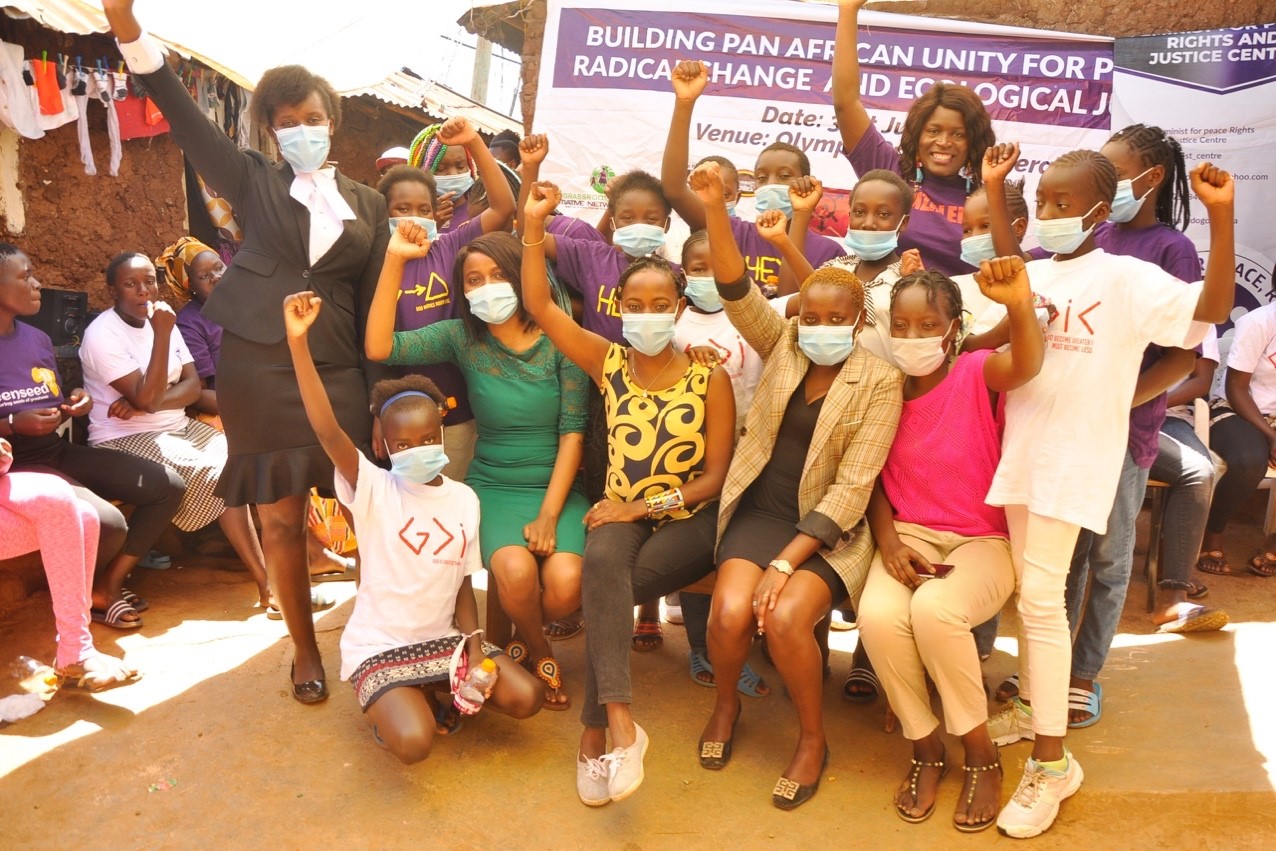
| |
COLLECTIVE CARE FOR WOMEN'S HUMAN RIGHTS DEFENDERS AND NON-BINARY GROUPS IN A PANDEMIC
Date: 06-24-2021
By Urgent Action Fund- Africa
The COVID-19 pandemic no doubt exacerbated inequalities in many communities across Africa. Its impact further worsened the social and economic situation of the poorest and most vulnerable in society. Marginalized groups such as women's human rights defenders (WHRDs), LBTQ and non-binary groups recorded deeper negative impacts as a result of the pandemic.
The stay-at-home directives and isolation increased their exposure to disrespectful family members consequently, increasing their risk of violence. In Kenya, a high rate of abuse, hate crimes, arbitrary arrests and general mistreatment of activists and non-binary people were reported during the imposed lockdown. There were instances of authoritarianism by the state, which used enforcement of lockdown measures as an excuse to perpetuate police brutality.
Furthermore, many WHRDs and LBTQ groups lost their jobs, with some experiencing varying degrees of mental health challenges. Activists continued to experience anxiety and fear as a result loss of job, violence, isolation and constantly wondering how to mobilize for resources that can offer tangible support to meet their work related and personal needs. As everyone is affected by the impacts of COVID-19, holistic care and wellness for many, particularly activists, LBTQ and non-binary groups in the pandemic became scarce or out rightly unavailable.
With the increasing need for psychosocial support for activists and LBTQ and non-binary groups UAF-Africa supported the feminist movement in Kenya to undertake series of activities to support the most marginalized groups in several counties across Kenya. The activities included services of a team of feminist lawyers to offer pro-bono services to marginalized groups who are experiencing gender-based violence (GBV), emergency COVID-19 essentials to vulnerable communities, a toll-free helpline to offer psychosocial support to GBV victims and a virtual collective care event that helped feminist activists to recharge, reconnect with one another, and find inspiration to continue doing the work.
Feminist Kenya, a network of feminist organizations engaged feminist lawyers to provide legal support, they took measures to ensure that the cases are either taken to court or mediation and negotiation services are offered to the survivors who were not willing to go to court. Following the legal support, women's human rights defenders and LBTQ and non- binary groups were sensitized on feminist consciousness and how they can demand their rights and advance their access to justice in the face of violence and discrimination.
Beyond addressing the rights violation that marginalized groups are facing due to the pandemic, Feminist Kenya offered emergency COVID-19 essentials to vulnerable groups, such as women and gender minorities who have seen their incomes severely disrupted. They received antiseptic gels, masks, soap, gloves, etc to face the pandemic. The toll-free helpline that was set up provided psychosocial support through feminist psychologists and counsellors. They also organized a well being and collective care session to allow WHRDs and activists to rejuvenate. The session allowed 60 WHRDs and non-binary activists to relax, recharge, reconnect with other feminists and find inspiration to continue doing the work.
While most African governments' led response to COVID-19 focused on addressing the health dimensions of the pandemic, feminist organizations such as Feminist Kenya have continued to focus their interventions on activities that bridge structural inequality gaps that is often left out by many government institutions in their response to COVID-19.
Building feminist solidarity and embedding feminist practice in the community we organize with was the hallmark of this funding. It was important for us that our community understands that despite the pandemic, women's rights have not been forgotten, women's rights are still important and that organizing at the grassroots was still priority not only for our feminist movement but also to women's rights donors', said one feminist.
Through this initiative, Feminist Kenya demonstrated feminist leadership by addressing underpinning gender inequalities in a crisis situation such as experienced during the COVID-19 pandemic. One of the participants at the well being session said, building feminist solidarity and embedding feminist practice in the community we organize with was the hallmark of this funding. It was important for us that our community understands that despite the pandemic, women's rights have not been forgotten, women's rights are still important and that organizing at the grassroots was still priority not only for our feminist movement but also to women's rights donors'.